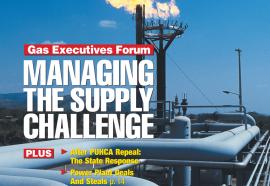CRM and Outsourcing: Outsourcing Growth?
A behind-the-scenes look at what industry influencers are saying.
Understanding the downstream effects of reading and billing from a customer’s meter in a near real-time scenario will increase significantly the data throughput into current customer information systems. Can current systems handle the volume increase? Will call centers have the capacity to handle increased call volumes once customers have access to smart meters and all that they imply? In this case, would outsourcing certain information technology processes be the answer to reducing a utility’s risk and costs?










